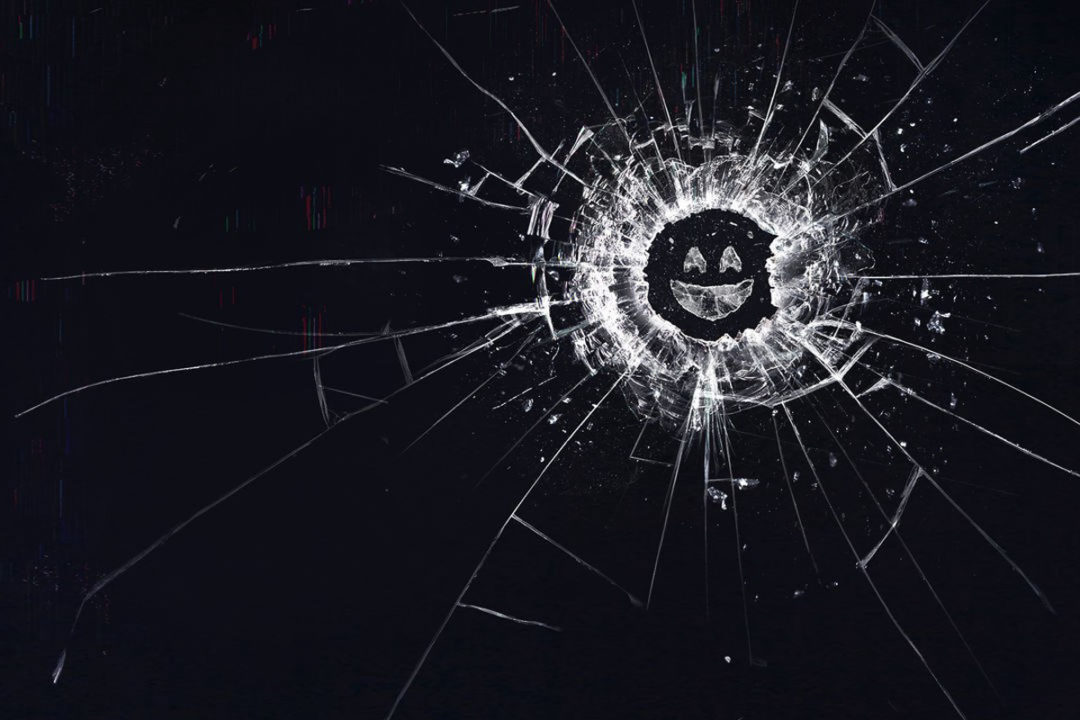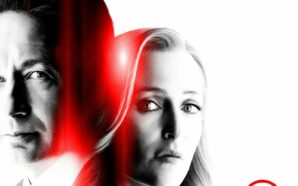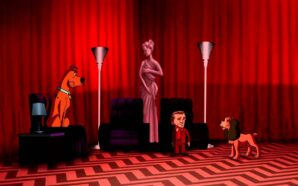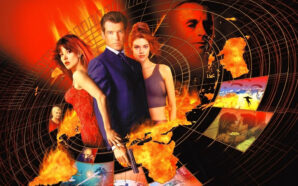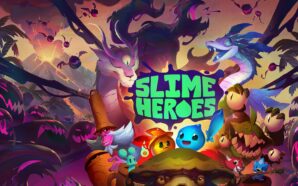Black Mirror is one of the smartest shows on TV but it could be making a dumb decision. Throughout the show’s run there have been little easter eggs and references hinting at connections to episodes past, whether it be a certain song that pops up once a season or a blink-and-you’ll-miss-it sentence whizzing by on a news ticker, but ‘Black Museum’, the season four finale, seems to imply more than just fun easter eggs: a shared universe. In the titular museum we see photos and costumes from ‘White Bear’ (my favourite episode of the show), a robotic bee from ’Hated in the Nation’ and the bathtub from ‘Crocodile’ as exhibits and references are made to ‘San Junipero’, a graphic novel of ‘Fifteen Million Merits’ is seen and an updated version of the Cookie seen in ‘White Christmas’ appears. I love hunting down the little easter eggs in most Black Mirror episodes but I feel that retroactively turning Black Mirror into a shared universe is the wrong call.
First of all, I was a little disappointed in ‘Black Museum’ because I felt the three stories, primarily the first, should have linked to the overall narrative more but also because the shared universe concept is used to disguise that Brooker is telling a story we’ve already seen before. Just because it’s mentioned that the ‘Cookie’ technology is related to the same technology we saw in a previous episode (‘White Christmas’) doesn’t excuse the fact that we are seeing the same technology in a very similar story. I’m a huge Charlie Brooker fan so I find it hard to say this but it just seems like he’s run out of ideas and is falling back on stories and tech that he’s previously created and using the shared universe idea as an excuse. Either that or he’s been listening to the Ricky Gervais podcasts and getting ideas from Karl Pilkington but I think that is just a fun coincidence.
Black Mirror has already been commissioned for more episodes by Netflix and I hope that it’s not another six-episode season because it could put too much pressure on Brooker to come up with six original ideas. I’d much prefer shorter seasons or maybe even just one-off specials that could be produced if and when Brooker, or a writer he teams up with, has an idea for a new episode like when ‘White Christmas’ aired as a special on British TV.
However, my main issue with Black Mirror being a shared universe is that it could limit the types of stories that can be told. Episodes that could have seen post-apocalyptic futures or world-changing events now might never be produced because they all have to fit into one timeline and not affect one another, getting rid of the freedom of the anthology format. And what of episodes that have already been produced that seem to be set in a completely different version of Earth? Where do ‘Metalhead’ and ‘Fifteen Million Merits’ fit in? Maybe the predicaments seen in those episodes are limited to a particular place but I feel that lessens the impact of those episodes, especially ‘FMM’ which I feel is much stronger when you presume that this is how the entirety of the human race now lives. And what of the ending of ‘The Waldo Moment’ that implies that Waldo has essentially dominated the world and has become some sort of supreme leader/entertainment icon? Actually, I’d be okay if ‘The Waldo Moment’ is struck from the Black Mirror canon altogether because it’s the only episode I think is actively bad.
In ‘Black Museum’ we see a character reading a comic-book version of the season 1 episode ‘Fifteen Million Merits’ which creates all kinds of questions about the interconnectedness of the show. Does this mean that ‘FMM’ occurred in the same universe somewhere and that the book is a non-fiction retelling of the story? Or does it mean that some episodes take place in separate timelines that are just as fictional to one and other as the entirety of the show is to us? Which episodes belong in which timelines/universes? How many of these Black Mirror universes are there? It could be similar to Tarantino’s shared universe where most of his films take place in one universe except for Kill Bill and Death Proof which he describes as films within films; essentially when a character from Pulp Fiction goes to the cinema they could be going to see Kill Bill. ‘FMM’ is an interesting example however because ‘Black Museum’ shows the aforementioned comic-book but also shows that crime scene bathtub from ‘Crocodile’ and in ‘Crocodile’ we see a promotion for ‘WraithBabes’ which plays a huge part in ‘FMM’, so how does that work? Brooker has stated he never intended for the show to be a shared universe when it started but that he has since changed his mind which makes these retrospective connections all the more confusing and completely unnecessary.
With Black Mirror I always go back to what George Lucas said about Star Wars. The episodes (or film trilogies in his case) are like stanzas in a poem and should rhyme. That’s what I want from Black Mirror; some little easter eggs and references and sharing of themes but not actual tangible connectedness. Two of my favourite episodes are ‘White Bear’ and ‘Shut Up and Dance’ which tackle similar themes and subject matter (protagonists revealed to be criminals, public punishments etc.) and that’s the only connection they need. Take a look at what forced interconnectedness has done to the Cloverfield franchise on Netflix: 10 Cloverfield Lane was only teased to be part of the same universe as the first film and was fantastic and then The Cloverfield Paradox came along and could have been a good film but was torpedoed by unnecessary connections and twists (the monsters never should have been in the film) which ruined the movie. I pray that doesn’t happen with Black Mirror.
All four seasons of Black Mirror are available to watch now on Netflix and a fifth is on the way.
Do you think Black Mirror should be a shared universe? What are your favourite episodes of the show? Let me know in the comments and geek out with me about TV, movies and video-games on Twitter @kylebrrtt.




